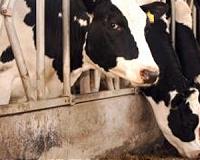 |
Cairo (UPI) Jan 20, 2011 Rising food prices, which triggered the downfall of the Tunisian regime and rioting in Algeria, threaten further trouble across the Middle East and North Africa, a region heavily dependent on food imports. The food crisis along with mushrooming populations, expanding desertification, dwindling water resources and growing unemployment create an explosive mix across the volatile region at a time when many fear new wars may soon erupt. The surprise downfall of President Zine al-Abidine Ben Ali Jan. 14 amid violent street protests over food prices, poverty, unemployment and decades of repression has galvanized people across the region that stretches from the Atlantic in the west to the shores of the Indian Ocean in the east. Algeria also saw street protests sparked by increased process for basic food items, including milk, sugar and oil, in which as many as 20 people were killed, mainly by security forces. Rampant unemployment was also a factor. Similar, though less intense, protests were reported in Jordan and Libya. The Middle East, with an agricultural sector severely limited because of water scarcity, is particularly vulnerable to food price shocks. Climate change is accelerating the decline in food production through water shortages, reduced rainfall, desertification and coastal flooding. In the last two decades, the region has been jolted by three waves of food riots, most recently in 2008 when prices spiked higher before global recession reduced demand. Now prices are climbing again. The United Nations' Food and Agriculture Organization reported Jan. 5 that its worldwide food price index hit a record high in December, exceeding the 2008 peak. The FAO's index, which covers the average prices of such staples as meat, dairy products, cereals and cooking oil, was up 25 percent from the same period in 2009. The World Bank observed in a recent report on food security in the Arab world that "Arab countries are very vulnerable to fluctuations in international commodity markets because they are heavily dependent on imported food. "Arab countries are the largest importers of cereal in the world" -- more than 58 million metric tons in 2007 -- "and most import at least 50 percent of the food calories they consume." It added that "of greater concern for Arab countries is that structural and cyclical forces are creating a system that is very sensitive to supply shortfalls and ever-increasing demand, making future price shocks very probable." Arab states' population growth rates are among the highest in the world. The population of the Arab world was 73 million in 1950. Now it's more than 333 million, four times higher. The World Bank expects that to double again by 2050, to around 600 million. Rich Arab states such as Saudi Arabia have bought huge tracts of land from Brazil to Indonesia in recent years in a bid to combat global food shortages, water scarcity and desertification and ensure long-term food security. Lennart Bage, president of the U.N. International Fund for Agriculture Development in Rome, says that land was long considered less important than oil or mineral resources. But now "fertile land with access to water has become a strategic asset." Countries in the Middle East and North Africa, with limited arable land, have to import most of their food. And the cost of those imports mushroomed from $16 billion in 2006 to $20 billion in 2007, according to the Arab Organization for Agricultural Development. By acquiring farmland abroad, and shipping the produce home, the Arab states could cut food prices for their own people by 20-25 percent through bypassing world markets. But this could have a potentially dangerous backlash for the governments in Africa, Asia and Latin America. FAO Director General Jacques Diouf has warned the headlong drive by rich food-importing countries to buy up vast tracts of farmland in the world's poorer states risks "creating a neo-colonial" agricultural system. As populations expand while the amount of farmland and water supply shrinks, resource wars are expected to erupt across the Middle East and Africa in the years ahead. "Unchecked land-grabbing carries with it the seeds of conflict, environmental disaster, political and social change, and hunger on an unprecedented scale," Le Monde Diplomatique warned.
Share This Article With Planet Earth
Related Links Farming Today - Suppliers and Technology
 Choosing Organic Milk Could Offset Effects Of Climate Change
Choosing Organic Milk Could Offset Effects Of Climate ChangeNewcastle, UK (SPX) Jan 19, 2011 Wetter, cooler summers can have a detrimental effect on the milk we drink, according to new research published by Newcastle University. Researchers found milk collected during a particularly poor UK summer and the following winter had significantly higher saturated fat content and far less beneficial fatty acids than in a more 'normal' year. But they also discovered that switching to ... read more |
|
| The content herein, unless otherwise known to be public domain, are Copyright 1995-2010 - SpaceDaily. AFP and UPI Wire Stories are copyright Agence France-Presse and United Press International. ESA Portal Reports are copyright European Space Agency. All NASA sourced material is public domain. Additional copyrights may apply in whole or part to other bona fide parties. Advertising does not imply endorsement,agreement or approval of any opinions, statements or information provided by SpaceDaily on any Web page published or hosted by SpaceDaily. Privacy Statement |